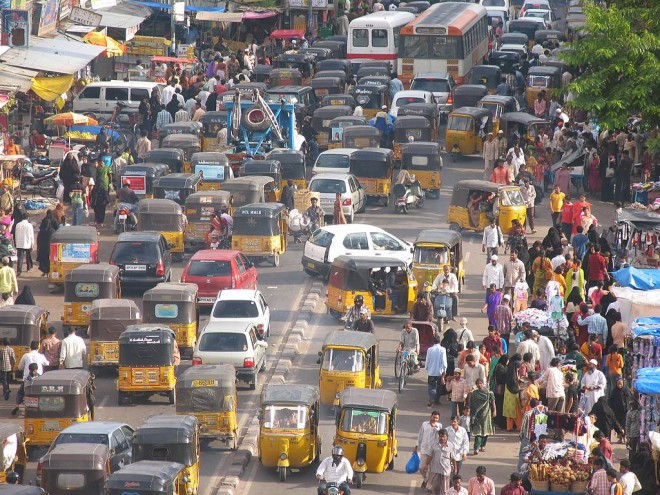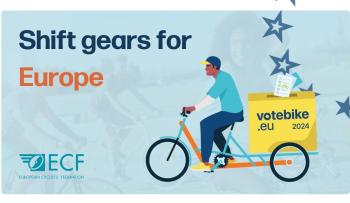
ECF Newswatch: India: 1 Billion Cars or 1 Billion Bicycles?
Pedestrians and cyclists are routinely ignored in Indian cities with the city of Pune noting that “40% of all major roads in the city have no footpaths.”
Ramish Moore from Pune, India, is a clerk and uses his bicycle to commute because he can't afford any other means of transport. He has been commuting for 15 years yet last week was injured when a speeding motorbike hit him on a cycle track. Moore’s experience points to a worrying imbalance in India: 55% of population still walk and cycle yet roads are designed for the remaining 45% of people that use vehicles.
Let’s add a little context into the discussion. Last year, the International Transport Forum reported some alarming figures: “The world’s population reached 6 billion in 2000 and will be around 9 billion in 2050. Coupled with rising incomes this will lead global mobility to expand strongly through 2050. If infrastructure and energy prices allow, there will be around 3 to 4 times as much global passenger mobility (passenger-kilometers travelled) as in 2000”
Take Me to the Source:
An article appeared in the Times of India on Dec, 19, 2011 entitled "Cyclists, walkers a neglected lot".
And this growth isn’t going to come from Europe: Passenger-kms in developing countries are expected to grow by up to 90% between by 2050.
It’s a scary thought that as mobility is increasing, Governments are “modernizing” transport and paving highways and roads. ECF believes it’s a recipe for disaster. If India’s one billion strong population had the same levels of car ownership seen in the west, this would mean 660 million cars on the road.
The result would be chaos. Grid-lock, poor health, air pollution, and uglier cities etc. In economic terms, it’s nasty. Congestion in the EU comes with a €200 billion price tag per year (approximately 2% of GDP). In India, this figure would be higher, and in a country with high levels of inequality, it would make things worse for those already living on the edge.
Perhaps we sound a little bit pig-headed in the west when we tell the developing world: “No, you guys can’t have cars, it’s just not sustainable”.
Yet the message that we should try to promote is that developing countries should learn from our mistakes and plan for people. Our obsession with the automobile has wreaked havoc on many cities’ livability as spaces for people were torn apart in the name of progress.
India, you’re at a crossroads. We’re discovering just how tricky it is to reverse decades of car-centric planning. Don’t make the same mistake.
Julian Ferguson is the Communications Officer for the European Cyclists’ Federation. Originally hailing from Australia and a keen bicycle advocate, he plans one day to ride his bicycle from Brussels to Melbourne
Contact the author
Recent news!
Contact Us
Avenue des Arts, 7-8
Postal address: Rue de la Charité, 22
1210 Brussels, Belgium











